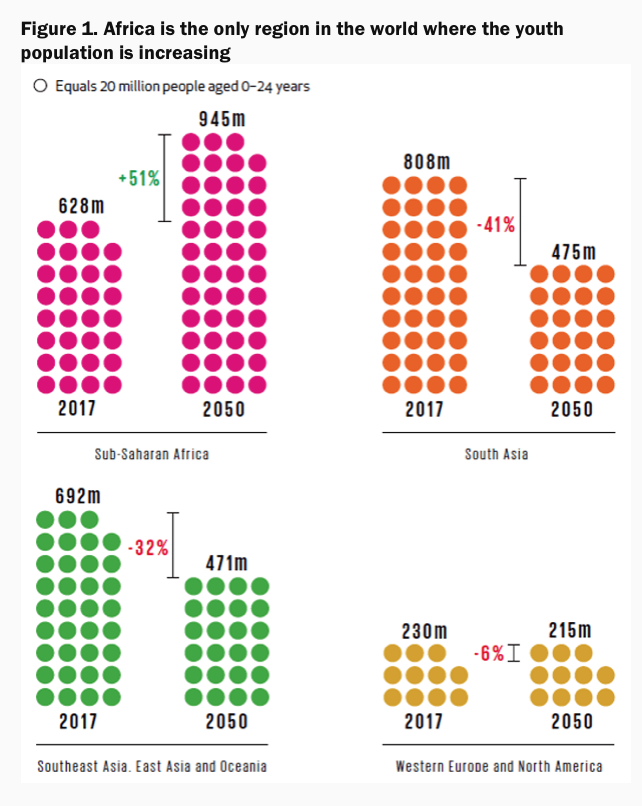United Nations Secretary, General Antonio Guterres said that the gender gaps in the labor force cost Africa $105 billion in 2014 alone.
To keep pace with the growing population, Africa will need to create 18 million new jobs each year between now and 2035.
We want to make sure that all young people, in and beyond Africa, have decent work and can fulfill their potential – Secretary-General Guterres.
By 2030, there will be 1.3 billion people in Africa between the ages of 15 and 24. Africa has one of the youngest populations in the world, and it is rapidly growing. Africa News shared that nearly 10-12 million youth enter the workforce each year, but only 3 million jobs are created annually.

“In our interconnected world, where new jobs in Africa drive new markets, new trade and investment opportunities and greater global stability, these new jobs are important for everyone’s future.” – British Prime Minister Theresa May
The United Nations, African Union, African Development Bank and the UK’s Department for International Development are all implementing initiatives to generate more jobs opportunities for youth. Africa is the future, but young people are now!
Aldelano Solar Solutions offers industrial-grade, low-maintenance solar products that can be used in an entrepreneurial capacity. The Aldelano Solar ColdBoxTM can be rented out to farmers for cold storage. The Aldelano Solar PowerPakTM can be used to sell solar power to businesses or homes. The Aldelano Solar WaterMakerTM can be used to sell clean water or ice that is generated from moisture in the air.
Many countries in Africa do not have a stable power grid or access to clean water. Aldelano Solar Solutions offer entrepreneurs tools that work within the current environment.
While African countries individually represent small markets, collectively, they represent enormous market potential. Harnessing the 60 percent of a population under 24 years old can lead to transformative changes for the continent. Jobs and opportunity can end cycles of poverty. Gender inequality costs Sub-Saharan Africa tens of billions a year. Integrating women into Africa’s economies will help build a more prosperous Africa.

The chart above from brookings.edu shows that GDP per capita will increase by 39 percent by 2050 if human capital investment remains unchanged, specifically investment in health and education can trigger an 88 percent increase in GDP per capita.
Investing in human capital is pivotal in the prosperity of emerging economies.

